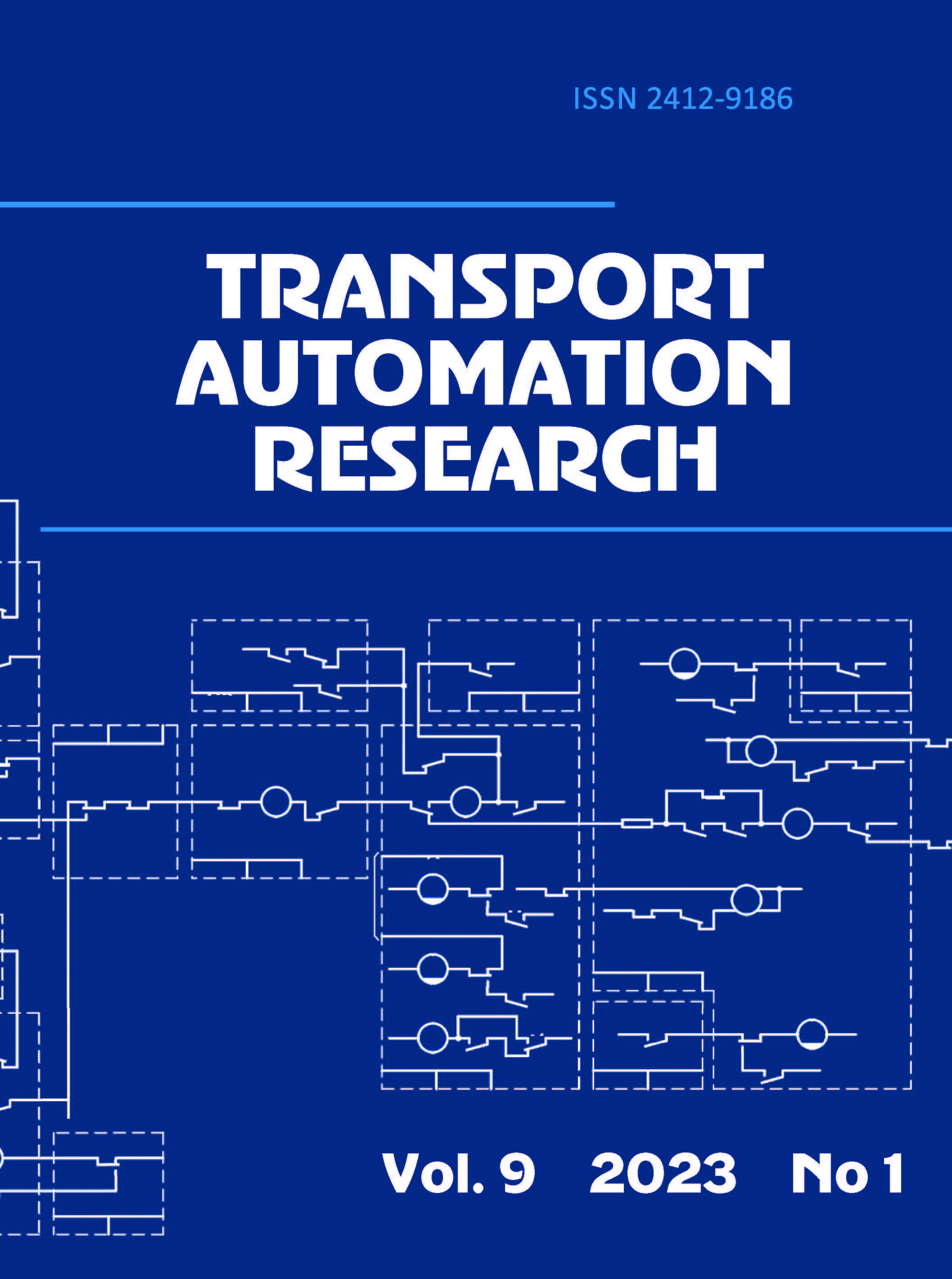Moscow, Russian Federation
In order to choose locomotive control algorithm when prognosing train motion rational mode in an exploitation by the methods of mathematical modeling, the calculation was performed of main technical and economic characteristics of the operation of diesel locomotive 2TE116U with a stock at the use of full power and at control, basing on the parameters of a mode map. The method basis represents train motion dynamic model on a railway section with a given profile. To verify the developed method, numerical studies were carried out in the wide range of changes of stock weights which not exceed the calculated weight. The obtained results have been compared with statistical data on the values of operational characteristics of train motion on Russia railways. It has been shown that train motion mode modelling at the use of locomotive full power gives a significant error at calculating technical speed, at the norm of train weight rate and fuel consumption and does not allow calculating locomotive control rational algorithm on optimization used criteria inclusive of operation conditions. At the choice of locomotive control rational algorithm, the necessity is substantiated for taking into account real conditions of train motion operation by batch or partially batch schedule which are reflected in mode map parameters.
dynamic model of train motion, model verification, locomotive control algorithm, statistical data of train operational characteristics, train schedule, train motion mode map, calculated technical and economic characteristics of train motion
1. Baranov L. A., Golovicher Ya. M., Erofeev E. V. et al. Mikroprotsessornyye sistemy avtovedeniya podvizhnogo sostava [Microprocessor systems for auto-matic guidance of rolling stock]. Moscow: Transport Publ., 1990, 272 p. (In Russian)
2. Muginshtein L. A., Vinogradov S. A., Yabko I. A. et al. Energooptimal'nyy tyagovyy raschet dvizheniya poyezdov [Energy-optimal traction calculation of the movement of trains]. Zheleznodorozhnyy transport [Railway transport]. 2010, vol. 2, pp. 24-29. (In Russian)
3. Baranov L. A., Sidorenko V. G., Balakina E. P. et al. Intellektual'noye tsen-tralizovannoye upravleniye dvizheniyem vneulichnogo gorodskogo zheleznodorozhnogo transporta v usloviyakh intensivnogo dvizheniya [In-telligent centralized traffic control of off-street urban railway transport in conditions of heavy traffic]. Nadezhnost' [Reliability]. 2021, vol. 2, pp. 17-23. DOI: doi.org/10.21683/1729-2646-2021-21-2-17-23. (In Russian)
4. Su R., Gu Q., Wen T. et al. Optimization of High-Speed Train Control Strategy for Traction Energy Saving Using an Improved Genetic Algorithm. Journal of Applied Mathematics, vol, 2014. DOI: doi.org/10.1155/2014/507308. URL: https://www.hindawi.com/journals/jam/2014/507308/.
5. Liu P., Han B. Optimizing the train timetable with consideration of different kinds of headway time. Journal of Algorithms & Computational Technology, 2017, vol. 11(2), pp. 148-162. DOI:https://doi.org/10.1177/1748301816689685.
6. Zheleznodorozhnye perevozki i infrastruktura [Railway transportation and in-frastructure]. URL: https://ar2001.rzd.ru/ru/performance-overview/analysis-operating-results/railway-transportation-infrastructure (accessed: December 14, 2022). (In Russian)
7. Coxon M. Alstom to deliver Train Control System for KiwiRail in New Zea-land. 14 September 2022. URL: https://www.alstom.com/press-releases-news/2022/9/alstom-deliver-train-control-system-kiwirail-new-zealand (ac-cessed: December 14, 2022).
8. Lina B., Zhaoa Y., Linb R. et al. Integrating traffic routing optimization and train formation plan using simulated annealing algorithm. Applied Mathemat-ical Modelling. May 2021, vol. 93, pp. 811-830. URL: https://www.sciencedirect.com/science/article/abs/pii/S0307904X20307381 (accessed: December 14, 2022).
9. Novikov V. G., Safronov A.S., Kuzyukov V. V. Mikroprotsessornyye sis-temy upravleniya dvizheniyem poyezdov v moskovskom metropolitene [Microprocessor control systems for train traffic in the Moscow metro]. Avtomatika na transporte [Automation in transport]. 2020, vol. 6, Iss. 3, pp. 268-288. DOI:https://doi.org/10.20295/2412-9186-2020-6-3-268-293. (In Russian)
10. Satoru I., Takayuki S., Keishi S. et al. Latest Train Control and Management System Technologies for Improving Safety and Maintainability. Hitachi Re-view. 2018, vol. 67, iss. 7, pp. 52-58.
11. Urbaniak M., Kardas-Cinal E. Optimization of Train Energy Cooperation Using Scheduled Service Time Reserve. Energie. 2022, vol. 15. DOI: doi.org/10.3390/en15010119.
12. Sovicka R., Rafajdus P., Varecha P. et al. Improved train simulation with speed control algorithm. Transportation Research Procedia. 2019, vol. 40, pp. 1563-1570.
13. Konkov A.Yu., Trunov A.I., Gurianova A.D. Metod regulirovki toplivnoy apparatury teplovoz-nogo dizelya po kharakteristike teplovydeleniya v usloviyakh ekspluatatsii [A method for adjusting the fuel equipment of a diesel locomotive according to the characteristics of heat release under op-erating conditions]. Vestnik VNIIZHT [VNIIZhT Bulletin]. 2021, vol. 80, Iss. 1, pp. 20-29. DOI:https://doi.org/10.21780/2223-9731-2021-80-1-20-29. (In Russian)
14. Morozov O. V., Silyuta A. G., Filippov E. P. Vliyaniye ekspluatatsionnykh faktorov na rezhimy raboty teplovozov [The Influence of Operational Factors on the Operating Modes of Diesel Locomotives]. 2022. (In Russian)










